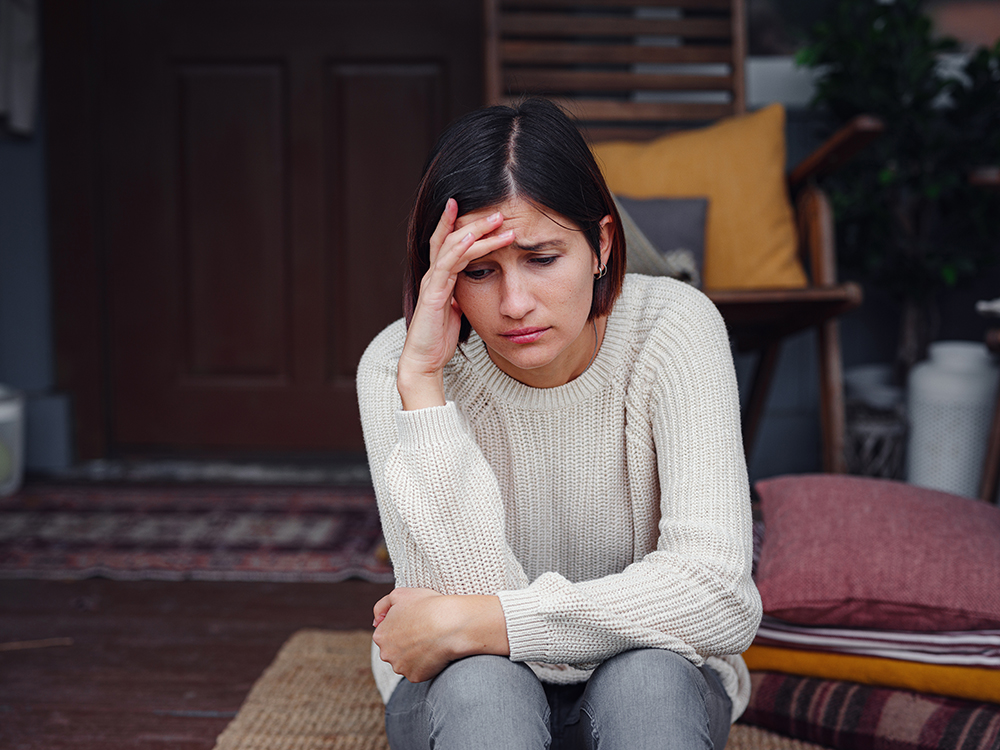
Feeling anxiety is a natural reaction to perceived threats, real or not. Experiencing anxiety occasionally doesn’t mean you are living with an anxiety disorder. In fact, some people only experience anxiety situationally.
Situational anxiety can have you experiencing symptoms of anxiety when facing specific situations. Due to the occasional nature, situational anxiety is different from anxiety disorder.
What are symptoms of anxiety?
Situational anxiety has similar symptoms of anxiety disorder. It is common for these symptoms to include:
Pressure in the chest.
Sweating.
Dry mouth.
Rapid heart rate.
Shortness of breath.
Negative thoughts.
Sense of impending doom,
Lightheadedness.
Upset stomach.
Muscle tension.
Inability to focus.
Irritability.
Certain situations can also trigger a panic attack in people.
What can trigger situational anxiety?
Triggers can be different for everyone. What someone would consider a run of the mill event may cause crippling situational anxiety in someone else. Triggers can look like:
First day of school.
Making small talk.
First day of a new job.
Public speaking.
Meeting new people.
Social engagements.
Being away from home.
Traveling somewhere new.
Job interviews.
Wedding day.
Birth of a child.
Using a public restroom.
Auditions.
Feeling anxious facing the unknown is okay and your feelings are valid.
How can you cope with situational anxiety?
Depending on the trigger, some people can cope by avoiding the triggering situation. However, not all situations can be avoided. If you are facing a situational anxiety trigger, the following methods may be beneficial for coping:
Seek professional help — It shows incredible strength to seek help you need. A doctor may recommend anti-anxiety medications to help you manage symptoms or recommend seeking therapy. A therapist can help you learn coping skills to deal with your situational anxiety. Cognitive behavioral therapy, exposure therapy, or acceptance and commitment therapy may be beneficial.
Prepare — If facing a stressful situation and you are able, preparing for it can be helpful. If giving a speech, this could include deciding what to wear beforehand to take one item off the daunting task list. Practicing your speech could also help alleviate any anxiety you may have due to giving you more confidence in your abilities.
Routine — Having a routine established before stressful situations may also help you relax due to the familiarity.
Self care — It is easy to neglect ourselves, especially when consumed by stress. Making a point to treat yourself to some calming self care can help promote a relaxing sensation and can help relax your nerves.
Be realistic — We can be our own worst enemy when we get caught in the anxiety trap in our minds. Situations are rarely as stressful or turn out as catastrophic as we can sometimes convince ourselves to be. A therapist can help you learn to turn your approach from glass half empty to glass half full so you can face stress with more ease.
Lean on your support system — Seeking therapy doesn’t have to be your only support in stressful situations. Turning to your support system of friends and family can also be helpful. If the situation allows, you could take a member of your support system with you for a potential boost of confidence.
Breathe — relaxation techniques such as breathing exercises can be beneficial in helping alleviate situational anxiety. Taking deep abdominal breaths may help lull you into a state of calm, helping you release built up anxiety.
Exercise — It may be beneficial if you turn your anxious energy into physical activity. Physical activity may help you expel instead of internalize anxious energy.
Face your fears — Situational anxiety can be due to the unknown about a situation. A great way to help overcome this, can be to face the unknown. Exposure to certain situations can help you slowly become accustomed to it and can help remove the anxiety surrounding it.
Avoid caffeine — Caffeine can disrupt your sleep and increase your heart rate. Too much caffeine could potentially leave you feeling more anxious. Avoiding too much caffeine intake before your anxiety inducing event may help lessen your situational anxiety.








